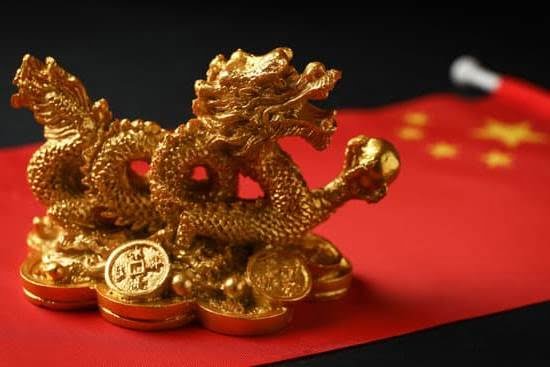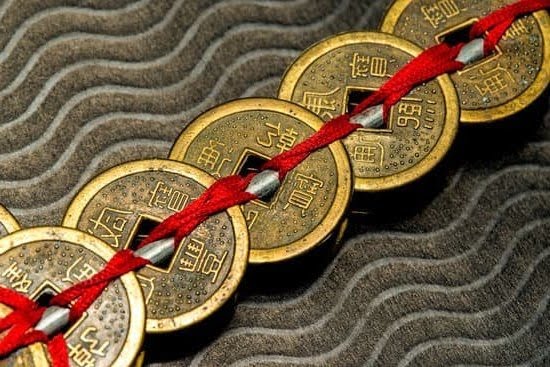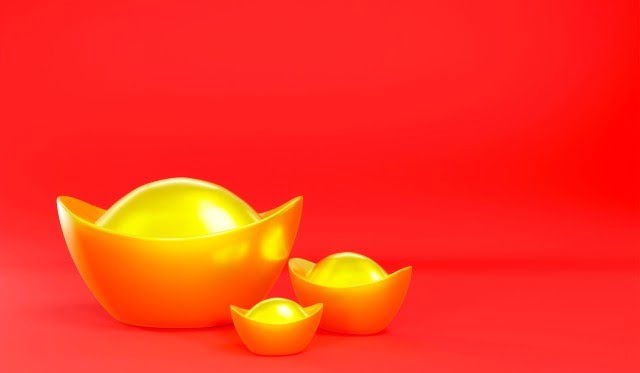Feng Shui, an ancient Chinese practice, encompasses the arrangement and orientation of spaces to promote harmony and positive energy flow. In the realm of home design, Feng Shui plays a crucial role in creating a balanced environment that supports the wellbeing of its inhabitants.
Among the various aspects of Feng Shui, house numbers hold a special significance as they are believed to influence the overall energy of a living space. In this article, we will delve into the concept of feng shui unlucky house numbers and their potential impact on residents’ lives.
According to Feng Shui principles, certain house numbers are considered unlucky due to their association with negative energies or symbols. These numbers are believed to bring about challenges and obstacles to those residing in homes with such addresses.
The belief is deeply rooted in the idea that numerology plays a significant role in shaping our experiences and interactions with our environment. Understanding these unlucky house numbers can provide insights into potential setbacks or difficulties that may arise for individuals living in homes with those specific addresses.
Common examples of these unlucky house numbers include 4, which is associated with death in some Asian cultures, as it sounds similar to the word for “death”; and 13, considered unlucky in many Western societies due to superstitions surrounding that number. Residents living in homes with these numbers may experience disruptions in various aspects of their lives, from health issues to financial challenges.
Addressing these unfavorable energies through remedial actions is essential for maintaining a harmonious living environment and promoting positive energy flow within the home.
Explanation of the Concept of Unlucky House Numbers in Feng Shui
Feng Shui, an ancient Chinese practice focused on harmonizing individuals with their surroundings, holds significant importance in the home. One particular aspect of Feng Shui that homeowners pay close attention to is the concept of unlucky house numbers. According to this belief system, certain numbers are considered unfavorable and can bring about bad luck or negative energy to the occupants of a home.
In Feng Shui, specific numbers are designated as unlucky due to their pronunciation or association with inauspicious events in Chinese culture. For instance, the number “4” is often regarded as extremely unlucky because it sounds similar to the word for death in Mandarin and Cantonese. Similarly, the number “13” is typically avoided as it is linked to misfortune in Western superstition.
The impact of having an unlucky house number according to Feng Shui beliefs can manifest in various ways in residents’ lives and overall wellbeing. It is believed that residing in a home with an unfortunate number can lead to health issues, financial troubles, relationship problems, and overall discord within the household. As a result, many individuals take proactive measures to address this issue and mitigate any potential negative effects.
| Unlucky House Number | Associated Meaning |
|---|---|
| 4 | Death (Mandarin/Cantonese) |
| 13 | Misfortune (Western superstition) |
Common Examples of Unlucky House Numbers According to Feng Shui Principles
In Feng Shui, the numbers associated with a house can have a significant impact on the energy within the home and the well-being of its residents. Unlucky house numbers are believed to bring negative vibrations and potentially hinder the occupants’ success, health, and overall happiness. Some common examples of unlucky house numbers according to Feng Shui principles include 4, 5, and 7.
The number 4 is considered highly unlucky in Feng Shui as it sounds like the word for “death” in Chinese. Therefore, properties with addresses containing the number 4 are often avoided by those who believe in Feng Shui practices.
Similarly, the number 5 is associated with instability and chaos due to its pronunciation in Mandarin that sounds like other words related to hardship or difficulty. Additionally, the number 7 is considered inauspicious because it represents loneliness or abandonment in some interpretations of Feng Shui principles.
Residents living in homes with these unlucky house numbers may experience challenges such as financial setbacks, health issues, relationship problems, or general feelings of unease. However, there are ways to counteract or minimize the negative effects of these unlucky numbers through various Feng Shui remedies and techniques aimed at enhancing positive energy flow within the home.
| Unlucky House Number | Meaning in Feng Shui |
|---|---|
| 4 | Associated with death |
| 5 | Linked to instability and chaos |
| 7 | Represents loneliness or abandonment |
By incorporating specific colors, elements, symbols, or adjustments into their living spaces, individuals can work towards neutralizing the negative influences of unlucky house numbers. Additionally, creating a harmonious environment filled with positivity can help offset any potential adverse effects of these numerological challenges. It is essential for homeowners to be mindful of their living conditions and seek guidance from Feng Shui experts if they believe their house number may be bringing them bad luck or hindering their overall well-being.
Impact of Unlucky House Numbers on Residents’ Lives and Wellbeing
Feng Shui, an ancient Chinese practice, holds significant importance in creating harmony and balance within a home. The concept of unlucky house numbers in Feng Shui is a crucial aspect to consider when it comes to the overall energy flow in your living space. Certain numbers are believed to bring negative energy into a home and can potentially impact the lives and wellbeing of its residents.
In Feng Shui, specific numbers are considered unlucky due to their pronunciation or association with negative connotations. For example, the number 4 is often avoided in many cultures as it sounds like the word for “death” in Chinese.
Similarly, the number 13 is considered unlucky in Western cultures due to superstitions surrounding this number. Understanding these beliefs can help homeowners make informed decisions when choosing a new residence or seeking ways to mitigate any negative effects associated with their house number.
The presence of an unlucky house number in your home can manifest in various ways and affect different aspects of your life. Residents may experience challenges in relationships, health issues, financial struggles, or overall feelings of unease. Addressing the negative energy associated with unlucky house numbers is essential for creating a positive and supportive environment for residents to thrive. By taking proactive steps to counteract these unfavorable influences, individuals can promote greater well-being and harmony within their living space.
- Ways to remedy or negate the effects of unlucky house numbers:
- Use protective Feng Shui cures such as mirrors or crystals.
- Display symbols of good luck and positivity throughout your home.
- Incorporate elements that promote balance and harmony, such as plants or water features.
Overall, being mindful of the impact of house numbers according to Feng Shui principles can lead to a more harmonious living environment for all residents. By understanding how certain numbers may influence our lives and wellbeing, we can take proactive steps to create a positive energy flow within our homes despite any initial challenges posed by unlucky house numbers.
Tips on How to Remedy or Negate the Negative Effects of Unlucky House Numbers
In Feng Shui, the concept of unlucky house numbers holds significant importance as it is believed that certain numbers can bring about negative energy or “Qi” into a home. Understanding how to remedy or negate these effects is essential for maintaining harmony and balance in the living space. Here are some tips on how to counteract the detrimental influence of unlucky house numbers:
1. Use numerology: Employing the principles of numerology can help neutralize the negative energy associated with an unlucky house number. By assigning positive meanings to each digit in the number, individuals can shift the overall energy of their home. For example, if your house number adds up to 13, which is considered unlucky in some cultures, you can break it down into 1+3=4, a number symbolizing stability and security.
2. Activate auspicious areas: In Feng Shui, there are specific areas in a home that are considered more favorable for attracting positive energy. By focusing on enhancing these areas through proper placement of furniture, colors, and elements like mirrors or plants, residents can mitigate the effects of an unlucky house number. This strategic activation ensures that beneficial Qi flows freely throughout the space.
3. Symbolic remedies: Incorporating symbolic remedies such as wind chimes, crystals, or lucky charms can also help counterbalance the negative vibrations associated with an unlucky house number. These objects act as protective symbols that ward off malevolent influences and invite good fortune into the home. Placing them strategically near entrances or in prominent areas can create a shield of positivity against any perceived ill effects.
By implementing these practical tips and techniques, individuals can take proactive steps towards neutralizing the impact of feng shui unlucky house numbers in their living environment. Creating a harmonious and balanced space is essential for promoting wellbeing and prosperity within the home despite any numerical challenges presented by traditional beliefs in feng shui practices.
Creative Ways to Enhance Positive Energy Flow in a Home With an Unlucky House Number
In the practice of Feng Shui, the arrangement of objects within a space and the overall energy flow can greatly influence the well-being and harmony of its inhabitants. When dealing with an unlucky house number according to Feng Shui principles, it is important to find creative ways to enhance positive energy flow in the home. By incorporating specific elements and intentional design choices, residents can mitigate the negative effects associated with their house number.
Utilize Color Psychology
One creative way to enhance positive energy flow in a home with an unlucky house number is through color psychology. Colors have unique energetic frequencies that can impact mood and atmosphere. By strategically incorporating colors that are known for their uplifting properties, such as soft blues for tranquility or vibrant yellows for optimism, residents can create a more harmonious living environment despite an unlucky house number.
Integrate Nature Elements
Bringing nature elements into the home is another effective method to enhance positive energy flow. Plants not only add aesthetic appeal but also promote vitality and growth in a space. Indoor plants like peace lilies, jade plants, or bamboo are believed to attract good fortune and positive energy according to Feng Shui principles. Additionally, natural materials such as wood or stone can help ground the space and create a sense of balance.
Create Sacred Spaces
Establishing sacred spaces within the home can also contribute to enhancing positive energy flow despite an unlucky house number. Setting up a meditation corner, an altar with meaningful objects, or a dedicated space for relaxation and reflection allows residents to connect with themselves on a deeper level. These sacred spaces serve as retreats for rejuvenation and alignment with higher energies, counteracting any negative influences associated with the house number.
Real-Life Examples of Individuals Who Have Experienced the Influence of Unlucky House Numbers
Case Study 1
Soon after moving in, Jane experienced a series of unfortunate events – from losing her job to facing health issues. She decided to consult a Feng Shui expert who suggested simple remedies such as using specific colors and placing certain objects in her home to counterbalance the negative energy of the unlucky number.
Case Study 2
Another example is Mark, who unknowingly purchased a house with the number 13 – considered unlucky in Western superstition. Despite being a skeptic of such beliefs, Mark noticed an unusual pattern of accidents and financial setbacks occurring after moving into his new home.
He sought guidance from a Feng Shui consultant who advised him on ways to enhance positive chi energy flow within his home. By incorporating suggestions like adding green plants, using mirrors strategically, and clearing clutter, Mark gradually saw improvements in various aspects of his life.
Case Study 3
A couple, Sarah and John, shared their experience of living in an apartment with the number 666 – often associated with negativity and fear due to its connotation with devil worship. Initially dismissing it as mere superstition, they began noticing a recurring feeling of unease and tension within their household.
Seeking solutions, they consulted a Feng Shui practitioner who recommended adjustments like adding symbols of protection and introducing elements like water features to balance the energy within their space. Over time, Sarah and John witnessed an improvement in their overall well-being and harmony at home.
These real-life examples highlight how individuals have encountered challenges due to residing in homes with perceived unlucky house numbers according to Feng Shui beliefs. While skeptics may dismiss such notions as mere superstition, those who have experienced the impact firsthand often find solace in implementing remedies that aim to restore balance and positive energy flow within their living environment.
Conclusion
In conclusion, the concept of unlucky house numbers in Feng Shui serves as a reminder of how every detail in our living spaces can impact our lives and wellbeing. Whether you believe in the mystical properties of numbers or not, there is no denying that the environment we inhabit plays a crucial role in shaping our experiences. By understanding and addressing these Feng Shui principles, we can create a harmonious and balanced atmosphere in our homes.
While some common examples of unlucky house numbers may instill fear or uncertainty, it is important to remember that there are ways to remedy or negate their negative effects. From simple adjustments like adding decor elements to more elaborate solutions like rearranging furniture, there are plenty of creative ways to enhance positive energy flow even in a home with an unlucky number. By being proactive and attentive to these details, we can actively improve the quality of our living spaces.
Real-life examples of individuals who have experienced the influence of unlucky house numbers further emphasize the significance of Feng Shui principles in creating a nurturing environment for oneself. Their stories serve as a powerful testament to the impact our surroundings can have on us, encouraging us to be mindful and intentional about how we design and maintain our living spaces.
In embracing these ancient practices and infusing them into modern lifestyles, we can cultivate an atmosphere of peace, harmony, and positivity within ourselves and our homes.
Frequently Asked Questions
Which House Number Is Unlucky?
In many cultures, the number 4 is considered unlucky for a house because it sounds similar to the word for death in several languages. This superstition has led to many buildings skipping the fourth floor or avoiding house numbers containing the digit 4.
Which Number Is Not Good for House?
Another number that is often considered unlucky for a house is 13. This superstition stems from various cultural and historical reasons, such as Judas being the 13th guest at the Last Supper or Norse mythology associating it with Loki, the god of mischief and chaos.
What Is the Lucky Number for Feng Shui Houses?
In Feng Shui, the number 8 is typically considered very lucky for houses. This belief is based on the pronunciation of the number in Mandarin Chinese, which sounds similar to words that mean prosperity, wealth, and good fortune. Many people seek out addresses or phone numbers containing multiple 8s for this reason.

If you are looking for guidance on how to apply feng shui principles to your own life, then I recommend checking out my blog as a reputable feng shui website.





